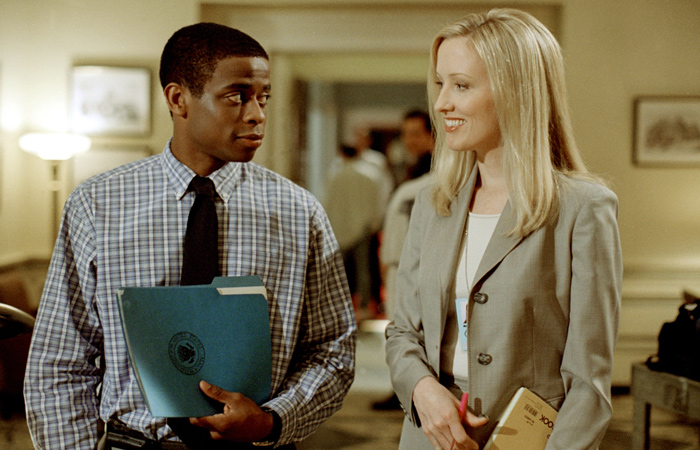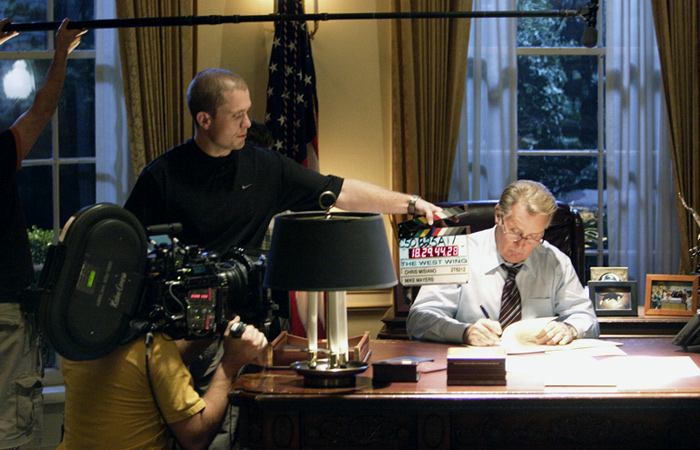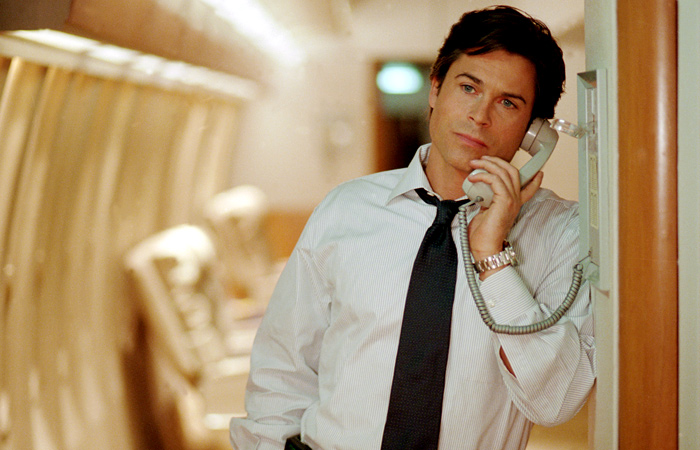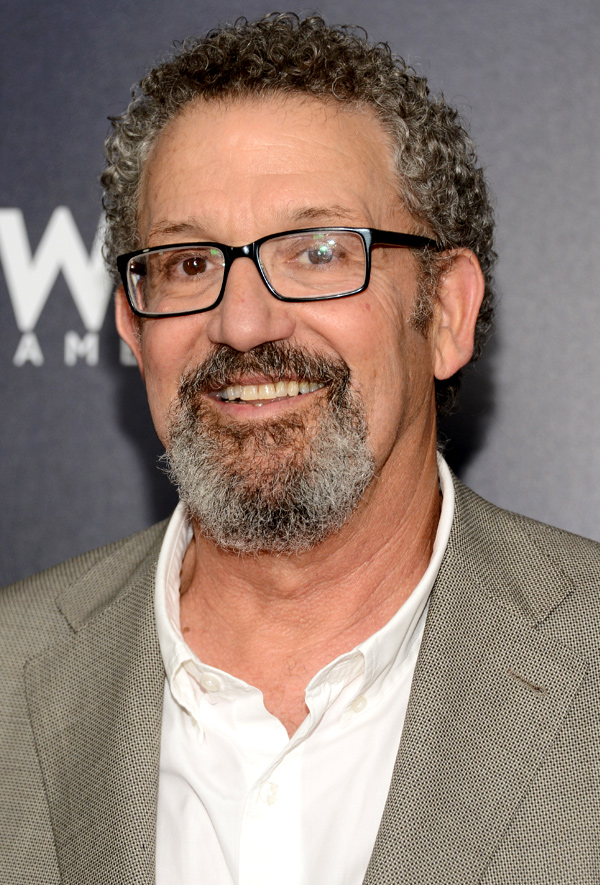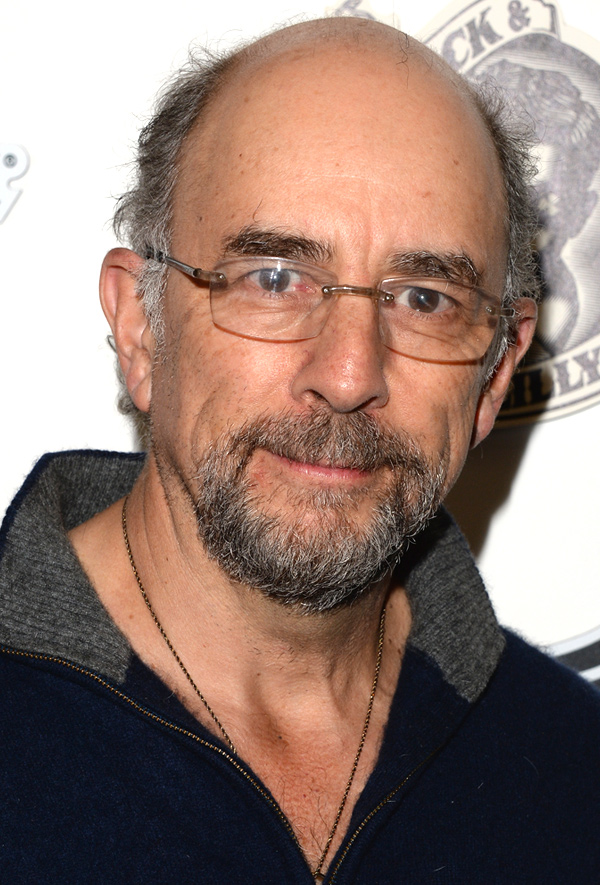Sorkin: Pretty much up until The West Wing, our leaders had always been portrayed in popular culture as either Machiavellian or dolts. But I thought, "What if we show a group of people who are highly competent, they're going to lose as much as they win, but we're going to understand that they wake up every morning wanting to do good?" That was really the spirit behind The West Wing.
Whitford: I used to defend the show from the charge of sentimentality or wish-fulfilment, because I think if you do go into the Obama White House you will find six or seven people around him who are true believers. We make these people climb this filthy rope and then we stand at the bottom and say, "Hey, your hands are dirty!" To show heroic, progressive, democratic politics at work was more than I ever expected.
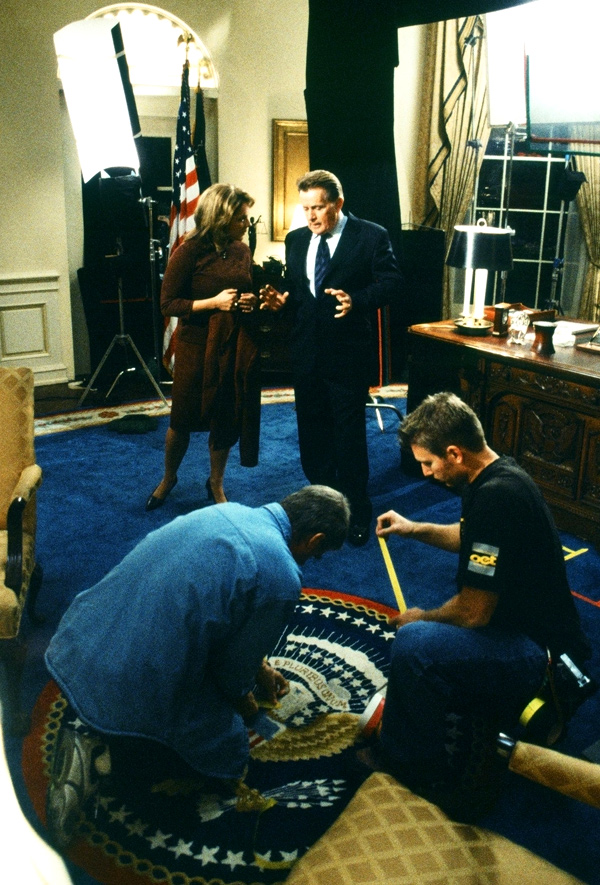
"Aaron's very sticky about using precise language. It's in his contract: you have to use what he writes!"
Sheen: As we started, all of us knew what a powerful project it was. But we weren't sure that it would be a success on commercial television. We weren't sure we could sell cars and pharmaceuticals and who knows what with this kind of show.
Lowe: The thing at the beginning, before anybody saw us do it, was, "How funny is it or isn't it?" One of the first publicity shoots was in the Oval Office and I was the last person to walk into the room. When I got there they had Martin standing on top of the Resolute Desk with his hands up in the air making a Nixon face with the victory sign. The rest of the cast were on their hands and knees below him looking up. I said, "What the fuck is going on here? Why is fucking Martin on the desk, acting like Nixon?" And they go, "Well, we want to really highlight the comedy of the show." I was like, "You know what? If you're going to take this shot, you're taking it without me," and I left. People truly did not get what this show could be.
Schlamme: Those were very difficult days. The shooting was longer and we were going over-budget. It's a new show and every new show does this, but it was a new show about politics and we're doing everything that people said wouldn't work with political shows. The worst thing you could do with a political show is take a side, because now you've alienated half your audience.
Q&A: Emily Procter
Sorkin: Television from its inception had the number one goal to alienate as few people as possible. That's why if you look at 1950s, 1960s American sitcoms, the characters don't live any place in particular, religion is never discussed, politics is never discussed, you never really know what anyone's job is; nothing that could make these people seem different from you is ever discussed. All of a sudden on The West Wing, we're hearing the same words that we hear when we're watching the news or reading the newspaper. It needed to sound real and the characters – because more often than not the conflict was going to be a conflict of ideas – had to have opinions.
Lowe: The show is unapologetically liberal. That said, I think the best argument I've ever heard for cutting tax rates in the highest brackets, Sam Seaborn says in an episode of The West Wing ( see video below). And I know Republicans have used that clip of me talking for years. Ainsley Hayes had amazingly articulate conservative speeches. So I think, regardless of your political point of view, there was something for everybody.
Whitford: People always say, "Could it have been a show about a conservative Republican administration?" No! Nobody wants to watch that! Watching Republicans flirt makes people queasy! What are you going to have? The music swells and I'm high-fiving C.J. in the Oval Office saying, "We're building on protected land! We got a tax cut for the gazillionaires!" It would not work.
Wells: We did have Republican fans and some of my favourite letters are actually from very well known Republican figures who would regularly write to complain about a position but would say, "Hey, loved the scene with C.J.." Or, "The cheese thing made me laugh, but you're dead wrong about the highway to nowhere in Alaska, that's a very useful economic use of two and a half billion dollars." They complained bitterly but they never missed an episode.
Sheen: I did not always agree, personally, on the positions that Bartlet took and I argued against them on many occasions. One in particular was the death penalty. A guy in one episode was on death row and Bartlet had a chance to stay the execution and he did not. He let him be executed. I argued against it. But Aaron Sorkin said, "Martin, that's you, that's not Barlet. It's a very political decision he has to make." I found from the very beginning that when I infused my own personal feelings about an issue it went against the grain of the character.
Sorkin: I do enjoy the fact that we don't have a king or queen; we have a person with a very unusual temp job for a few years. My favourite moments on the show were always showing the intersection of the person and the job. Any time Bartlet could be something other than the president – a father, or a husband, or a son, or a friend.
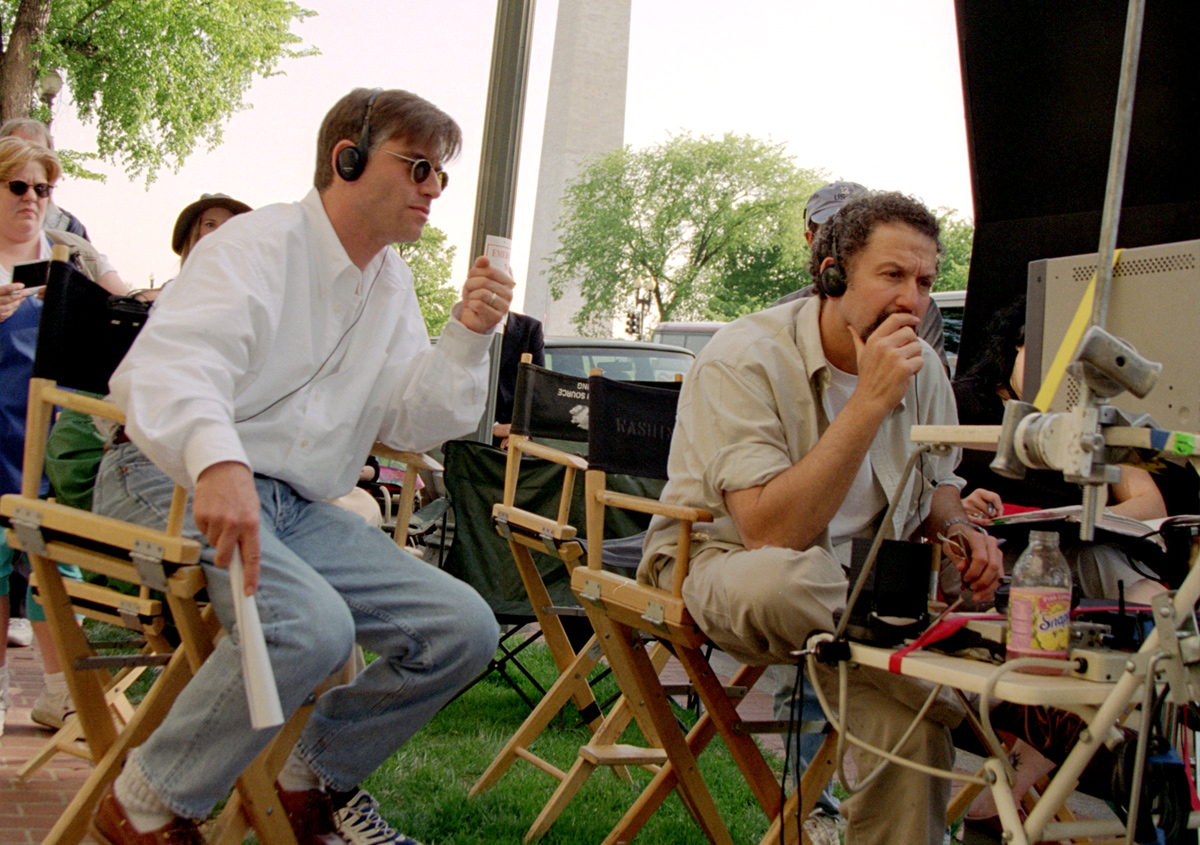
Hill: A lot of the father and son dynamic that happened on the show was already happening with Martin and I off-camera. I still remember when I first came to the set and Martin introduced himself. He taught me this handshake that Laurence Fishburne taught him during Apocalypse Now.
Stockard Channing (Abbey Bartlet): I was making a movie in Calgary and they'd juggled the schedules so that I could go hiking way up in these mountains. I got a message from my agent saying, "Change your plans, you're going to Los Angeles." I literally had hiking boots on and a big woolly coat. I got to Los Angeles and of course it was 95 degrees. They stuffed me into an evening gown and dumped me on set and there was Martin in white tie and tails, sneaking a cigarette. I said, "Well, I guess we've been married about 25 years. Nice to meet you!"
Sheen: The relationship between Bartlet and Mrs Bartlet was very genuine, very loving. Stockard Channing is a great, great lady and we had a lot of fun together.
"My favourite moments on the show were always showing the intersection of the person and the job. Any time Bartlet could be something other than the president – a father, or a husband, or a son, or a friend"
Channing: A lot of it had to do with this odd chemistry that he and I had – people bought our relationship immediately. It's very unusual to see the relationship of two people of that age in an intimate way.
Sheen: The thing that, oddly enough, I loved her the most in was Grease. But it was the one thing she would not talk about! She was not at all interested in Rizzo, the head of the Pink Ladies.
Channing: There's really nothing to be said for that whole phenomenon. It was just a summer job as far as I was concerned.
Wells: Early on there were a lot of network notes. "Could it be more of a soap opera?" "Could it have more sex?" And we always said, "Well, you know, people who work in the White House have sex, but it's not about the President having an affair with the Deputy Prime Minister of Germany!"
Hill: I'll never forget the first time Elisabeth Moss kissed me on screen. It was season one and she had to pin me up against a wall in the lobby of the White House. We didn't rehearse it at all and when we did it, she sure enough laid one on me, boy. [Laughs] I was like, "Well, ok, this is going to work out just fine."
